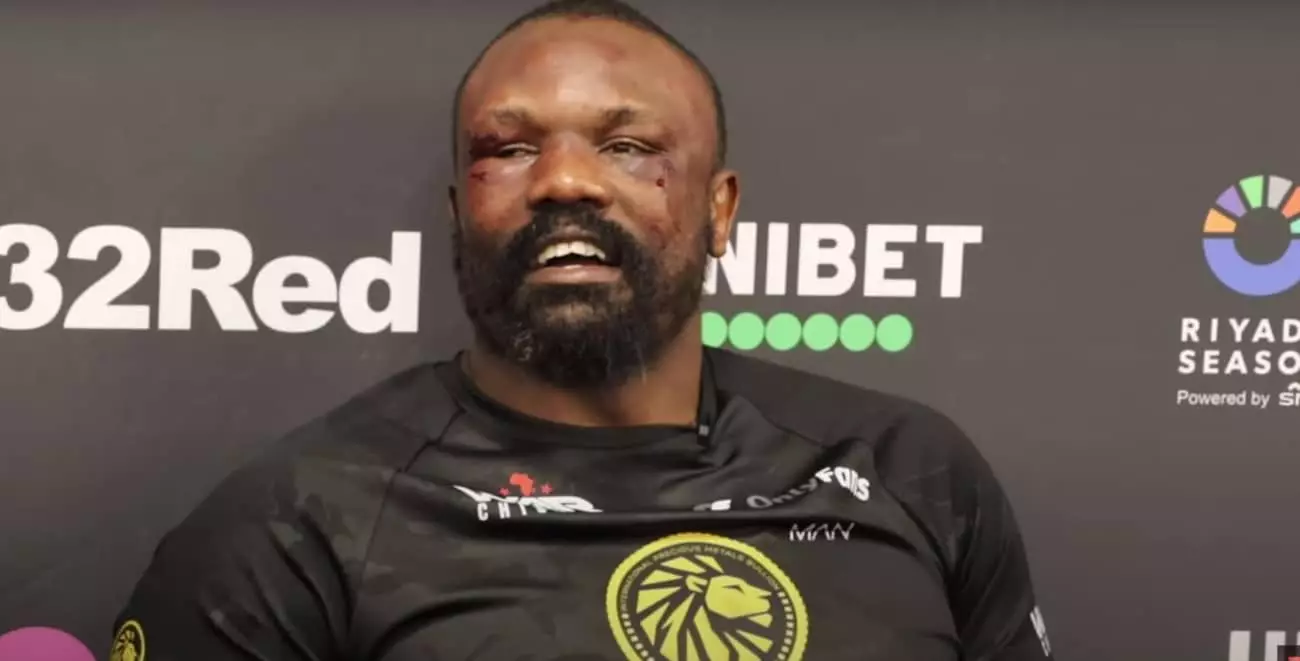The heavyweight boxing scene can often resemble a double-edged sword, where the allure of glory meets the stark reality of health risks. Cases such as that of British heavyweight Derek Chisora, who is reportedly considering a fight against reigning IBF heavyweight champion Daniel Dubois for his 50th match, highlight this dangerous interplay. While Chisora’s desire to retire on a high note is understandable, the prospect of him stepping into the ring with a younger and more powerful opponent raises significant concerns. The boxing community is not just watching the fight; they are holding their collective breath.
A Risky Proposition for Chisora
At 41 years old and with 49 professional bouts under his belt, Chisora’s resolve to prove his mettle one last time is commendable. It signifies a fighter’s indomitable spirit—a quality that has enamored fans over the years. However, it also prompts a critical examination of motivation: is the desire for a grand finale worth the potential consequences? His last bout against Otto Wallin in an IBF eliminator showcased flashes of Chisora’s enduring skill, yet he remains significantly outmatched against someone like Dubois, known for his brute force and knockout capability.
The looming question is whether Chisora will be able to fight effectively and safely against Dubois. Any rational observer understands that age brings weariness, and in combat sports, the difference between a prime athlete and someone past their peak can be stark and unforgiving.
The Voice of Concern: Don Charles’ Perspective
The emotional weight of mentoring a fighter like Chisora leaves Don Charles, Chisora’s long-time trainer, grappling with profound conflict. His comments highlight a significant relationship between trainer and fighter that goes beyond professional duty; it’s woven with personal history and emotional investment. Charles’s reluctance to see Chisora in the ring against Dubois encapsulates a broader sentiment shared among trainers, friends, and fans alike—concern over health and safety trumps the allure of a final payday.
Charles isn’t merely advocating for Chisora’s well-being; he is also voicing fears that echo those of many fans who have followed Chisora’s career. Boxing is about more than money; it’s about legacy, and the potential for a tragic outcome should not be overlooked. The stark reality is that a heavily damaged Chisora does nothing to honor his legacy but rather tarnishes it.
The Fight That Many Don’t Want to See
It’s crucial to recognize that the motives behind boxing matches are often laced with commercial interests. Promoters, networks, and even fighters can be swayed by the promise of financial gain, sometimes at the expense of a fighter’s health. In Chisora’s case, the potential match against Dubois dramatically raises alarm bells. It’s critical that the boxing community collectively advocates for fighters’ health over profit margins. If Chisora steps into the ring for a battle he doesn’t stand a realistic chance of winning, it could lead to a scenario so many dread—a grave injury or an unceremonious end to a commendable career.
Instead of pitting Chisora against a fearsome opponent like Dubois, the boxing community should rally for farewell fights that honor a veteran’s legacy without compromising their safety. Boxing is not merely about the fight; it is also about the story behind the fighters, their careers, and how they choose to leave the ring.
A Hopeful Outlook
As discussions continue, many wish for a clearer path for Chisora that doesn’t involve immediate peril. After all, what he truly deserves is a farewell that allows him to bask in the love of his fans, perhaps against an opponent suited more to a celebratory exit than a daunting challenge. As Dubois weighs his options—potentially against established names like Oleksandr Usyk or Joseph Parker—there lies hope that Chisora can find an alternative path.
The bittersweet nature of boxing often exerts pressure on fighters to continue long past their prime, driven by passion, pride, or the allure of a final show. However, everyone—trainers, fans, and fighters—must collectively demand more from fight promotions to ensure that safety does not take a backseat to spectacle. This dialogue is key, as it may serve as a warning to future generations of fighters navigating the dangerous waters of a sport filled with glamor and grit but also fraught with peril.

